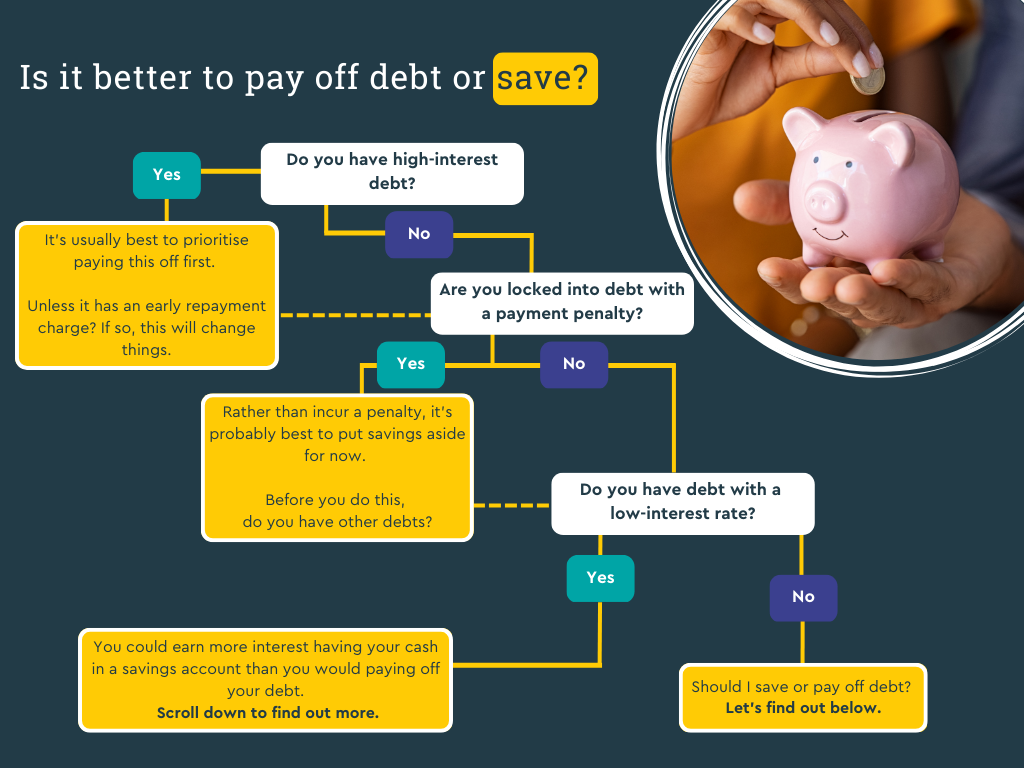Browser Not Supported
We no longer support Internet Explorer 11 as a browser.
Please download a more secure modern browser below.
We no longer support Internet Explorer 11 as a browser.
Please download a more secure modern browser below.
With a continued threat of a recession ahead for 2023, what can you do to protect your finances? Is it better to pay off debt or save for the future?
Assessing your debts is a priority when a recession is on the horizon. You want to make sure you’re taking the right actions to manage any debt or knowing when you’re better off saving.
Follow our flow chart then scroll down the blog to find what could be your right time to either pay off debts or start your savings.

Now you have the answer to when is it better to pay off debt or save, you could be ready to start saving. Here is how you can begin.
It looks as if you could be ready to start saving. If you are keeping up with mortgage payments and paying of your credit card bill in full each month then you could benefit from saving. Putting additional cash into a savings account, such as an easy access savings account, ideal for emergency fund. It's generally worth having three to six months' worth of expenses put aside in savings in case of an emergency. An easy-access saving account is ideal for an emergency fund.
If you have a longer term fixed savings account such as a fixed term bond or fixed term ISA account, perfect if you have a longer terms savings goal such as planning for a wedding or saving for a deposit for a house.
Whether you are paying off debts or looking to save, it’s vital to have a plan that you can stick to. It will help you to consistently meet your goals and you may even be able to pay off debt quicker or save a little extra. You can find the right budget for you in our five most popular budgets blog and some useful ways to track income and outgoings with our best budgeting apps.
For advice on how to manage debt or save, personalised to your individual, financial circumstances, speak with a professional financial advisor. Visit unbiased.co.uk. for a list of regulated advisers. There’s usually a charge for getting advice.